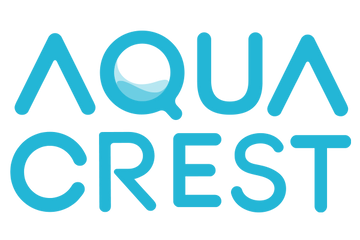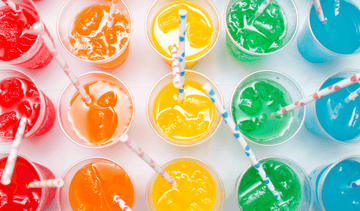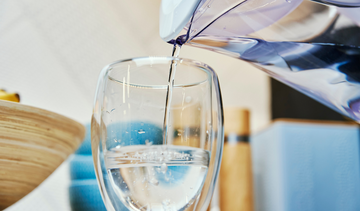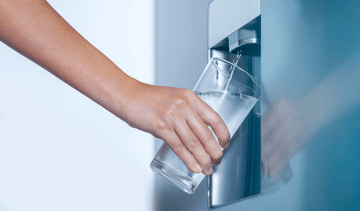
With increasing reported water crisis cases in recent years, there
has been rising skepticism about tap
water quality. Before pumping water into households, city water undergoes
treatment. However, for the past two decades, public infrastructure has deteriorated, increasing the risks of water
contamination in U.S. households.
Without purification, water contains several contaminants,
including chlorine, lead, sediment, and rust.
Where Can Families Get Purified, Good-tasting Drinking Water?
Many people get clean drinking water from refrigerator water
filter these days. These filters provide clean water with a minimal amount of waste.
Refrigerator filters remove impurities and improve water taste.
They also protect the refrigerators while maintaining the dispenser’s water pressure. Furthermore, filtered water
from refrigerators is cheaper than bottled water. Thus,
it saves money and does not contribute to plastic pollution.
Furthermore, refrigerator filters are always available for as long
as the refrigerators work. They also help people avoid managing and overspending on delivery services.
What Is The Working Principle of A Refrigerator Water Filter?
Refrigerator filters work via the simple filtration process. These
filters force water through the filtration media, trapping particulates and pollutants in water sources.
Furthermore, because a refrigerator water filter has different filtration media, the filter has different stages.
Some are two-stage, while some are three-stage. Nevertheless, with increasing filtration stages, there is increased
filtration efficiency.
Furthermore, many refrigerator water filters contain activated
carbon. The carbon works like a magnet by drawing and trapping the impurities in the filter. Consequently,
the water
from the filter is clean and impurity-free.
Refrigerator filters remove several impurities, including radon,
chlorine, benzene, unpredictable organic chemicals, and manufactured chemicals. Unfortunately, no water filter is
perfect. Thus each filter removes the impurities it was designed for.
Nevertheless, many fridge filters remove arsenic, chromium
fluoride, beryllium, barium, cadmium, sulfates, nickel, mercury, copper, thallium, and mercury.
Depending on your location, these heavy metals and inorganic
compounds may be absent in your water. But if they are, you can use a reverse osmosis filter. This filter has the
highest water purification accuracy.

Does the Refrigerator Water Filter Require Regular Replacement?
Yes. As mentioned earlier, the filtration media in refrigerators
is activated carbon, and it filters out contaminants. But, unfortunately, carbon’s capacity is limited. So, although
the water may taste okay, the filtration performance is limited. After all, many pollutants are tasteless. So, your
water becomes worse if you keep waiting to change your filter.
Replacing your filter regularly is the only way to guarantee
risk-free and effective filtration. A filter loses its effectiveness if it is clogged with contaminant bits. It also
allows impurities to pass into your drinking water.
Dangers of not changing your water filter regularly include:
A Short Refrigerator Service Life
Hazardous chemicals not only affect our bodies adversely but also
affect refrigerators. For example, scaling and deposit accumulation occurs in the water and ice maker when you fail
to replace your refrigerator’s water filter. Besides wrecking your fridge, this buildup slows down the system and
reduces water flow. It also affects the water taste negatively and shortens the refrigerator’s service life.
Bacteria-Breeding Ground
Carbon cannot absorb particles or living organisms once it reaches
its capacity. Consequently, the filter becomes a bacteria Petri plate, raising health concerns for the drinking
water
How to Choose The Best Water Filter for Refrigerator
Refrigerators are usually useful for 8 to 10 years. However,
depending on several factors, including usage, most refrigerator units from all manufacturers hardly last beyond
that time frame. Consequently, adding a water filter to a much older refrigerator may be difficult. Nevertheless,
here are four ideas to help you move through the refrigerator filter progression:
How Compatible Is Your Refrigerator?
As mentioned earlier, most refrigerators do not show signs of
aging till after a decade. So, if you have a much older refrigerator, it is most likely incompatible with a
refrigerator water filter. Consequently, you will need a different approach to providing filtered water for your
home and office. Nevertheless, you can still search online to see if there are filters compatible with your existing
refrigerator model. You can carry out your search using the refrigerator model number.
Is Your Refrigerator Efficient?
The efficiency of a refrigerator loosely coincides with its age.
Suppose you don’t have a refrigerator filter. In that case, you have to consider the fridge’s efficiency before
adding another function. That is because your refrigerator may already struggle with maintaining its essential
functions by expending a lot of energy. Therefore, it will be challenging to handle additional functions. When your
refrigerator is running, observe it closely before you add anything to its output requirements.
Is The Refrigerator Near A Water Line?
Before finally deciding whether you will add a fridge water
filter, look at your refrigerator setup closely. Recently, many refrigerators have been designed to be set up close
to the sink in modern kitchens. However, that is not always the case. Some home layouts have the refrigerator on the
other side of the room. In office settings, you can place the refrigerator almost anywhere. Unfortunately, suppose
your refrigerator is not close to your incoming water line, and you cannot reach it. In that case, this approach
will not work for you, except you can move the refrigerator closer.
Are The Filters Certified?
Finally, you should check the refrigerator filters certifications.
The official NSF product certifications are specifically for water filtration standards. Before certification,
companies voluntarily submit their product samples for testing and verification. The core standards of the water
industry include NSF 42, 53, and
401.
The most fundamental certification for clean, great-tasting water
is the NSF 42. Therefore, depending on the water quality in your area, this certification may be enough. However, in
many urban and industrial areas, the NSF 53 is essential. Finally, the NSF 401 is an additional and safe choice.
Aquacrest Refrigerator Filter Replacement
The Aquacrest refrigerator water filter is excellent for
eliminating most water contaminants. The filter works flawlessly with refrigerators. In addition, it is tested and
trusted by multiple certifications. You can always find a corresponding Aquacrest refrigerator filter replacement
whether your refrigerator is from Samsung®, LG®, GE®, or other brands.
Multiple NSF Certifications
The Aquacrest refrigerator filter replacement for Samsung®, LG®,
and GE® has multiple NSF certifications, including NSF 42 and 372. The filter is certified to remove harmful water
contaminants, including cysts, lead, benzene, mercury, chlorine, bad odor and taste. In addition, the NSF 372
certification confirms that the filter is made from safe, lead-free materials. Generally, multiple certifications
confirm the quality and effect of a product.
100% Fit and Compatibility
The Aquacrest refrigerator water filter replacement is 100%
compatible with the original refrigerator. So, you can rest assured that the replacement filter works like the
original. Furthermore, because of its comprehensive research and product development process, Aquacrest manufactures
and rolls out refrigerator filters that perfectly fit and do not have water leakage issues.
Best-in-class Filter Materials
Samsung®, LG®, and GE® refrigerator water filter replacement
contains 100% selected coconut shell carbon block. This carbon block is different from the inferior one. In
addition, it has larger micropores and provides a larger surface area. Consequently, there is a better adsorption
effect that improves water taste.

Competitive Price
The 3-pack Aquacrest
Replacement for Samsung® DA29-00020B®
Refrigerator Water Filter costs $32.99. That means one pack goes for $11. Consequently, you only spend $0.06
daily
for your household to enjoy fresh-tasting water.
The 3-pack Aquacrest
Replacement for GE® Refrigerator Water Filter
MWF only costs $29.99. Therefore, it goes at the rate of $10 for each. You get to spend less than $0.06
daily.
The 3-pack Aquacrest
Replacement for Refrigerator Water Filter LG®
LT1000P® costs $27.99. One unit costs $9.33. Therefore you only spend $0.05 daily.
Buying directly from Aquacrest instead of resellers saves you
money.
To Round Up
You can enjoy clean drinking water with refrigerator water
filters. These filters do not generate significant wastewater. Therefore, they are different from home water
filtration systems. Furthermore, you don’t have to spend much or maintain the refrigerator water filter as much. The
filter can continuously dispense clean water to your home as long as the refrigerator works properly.
*The manufacturer’s names and part numbers have been used for
reference purposes only.




